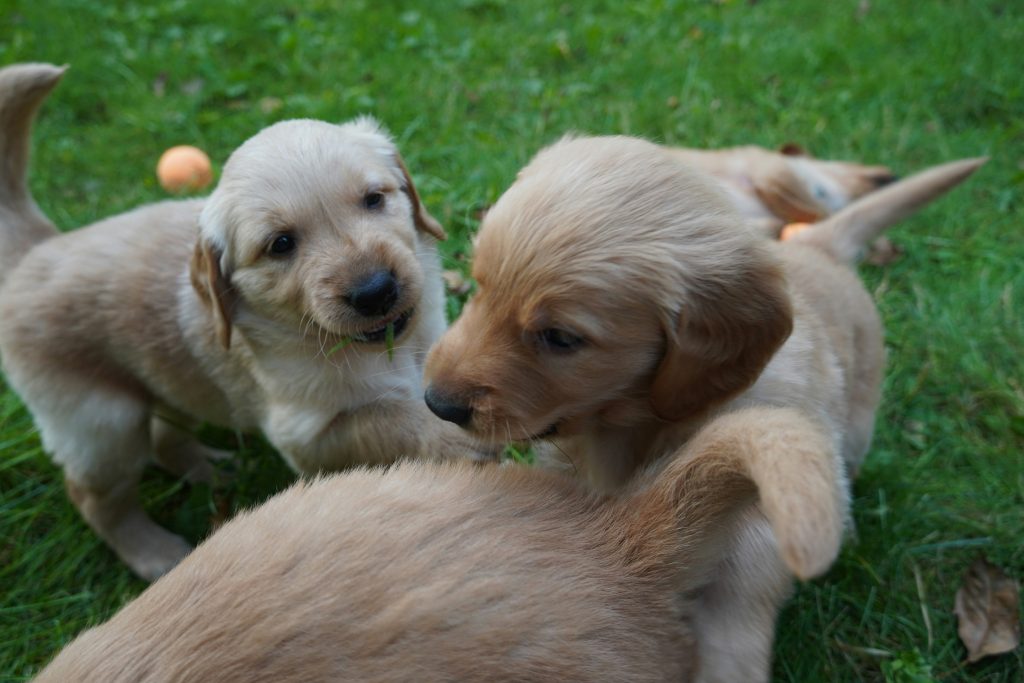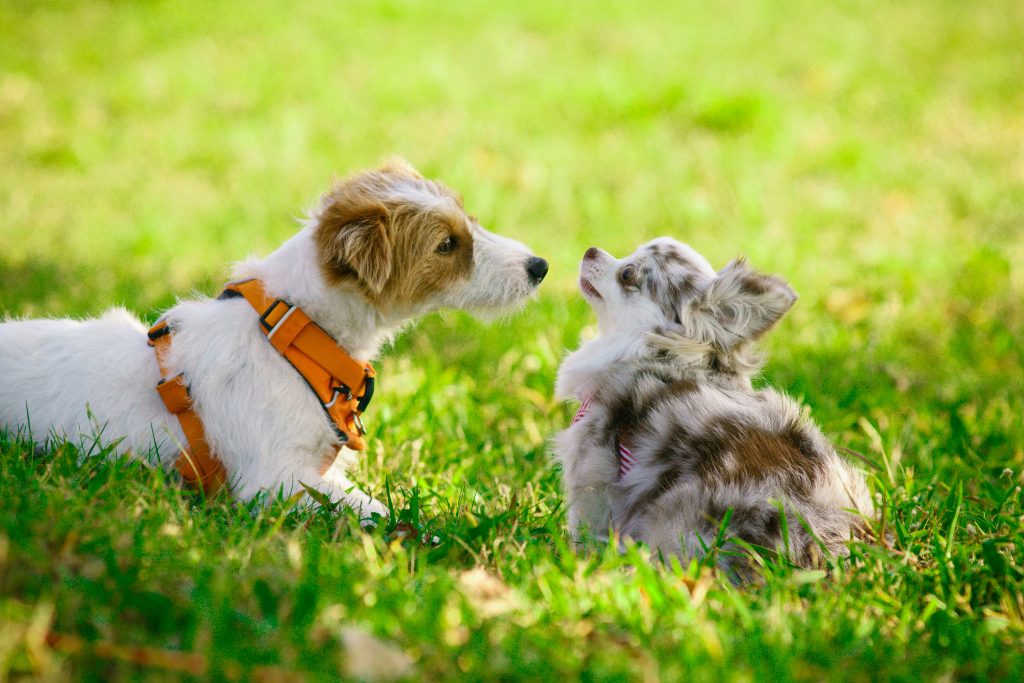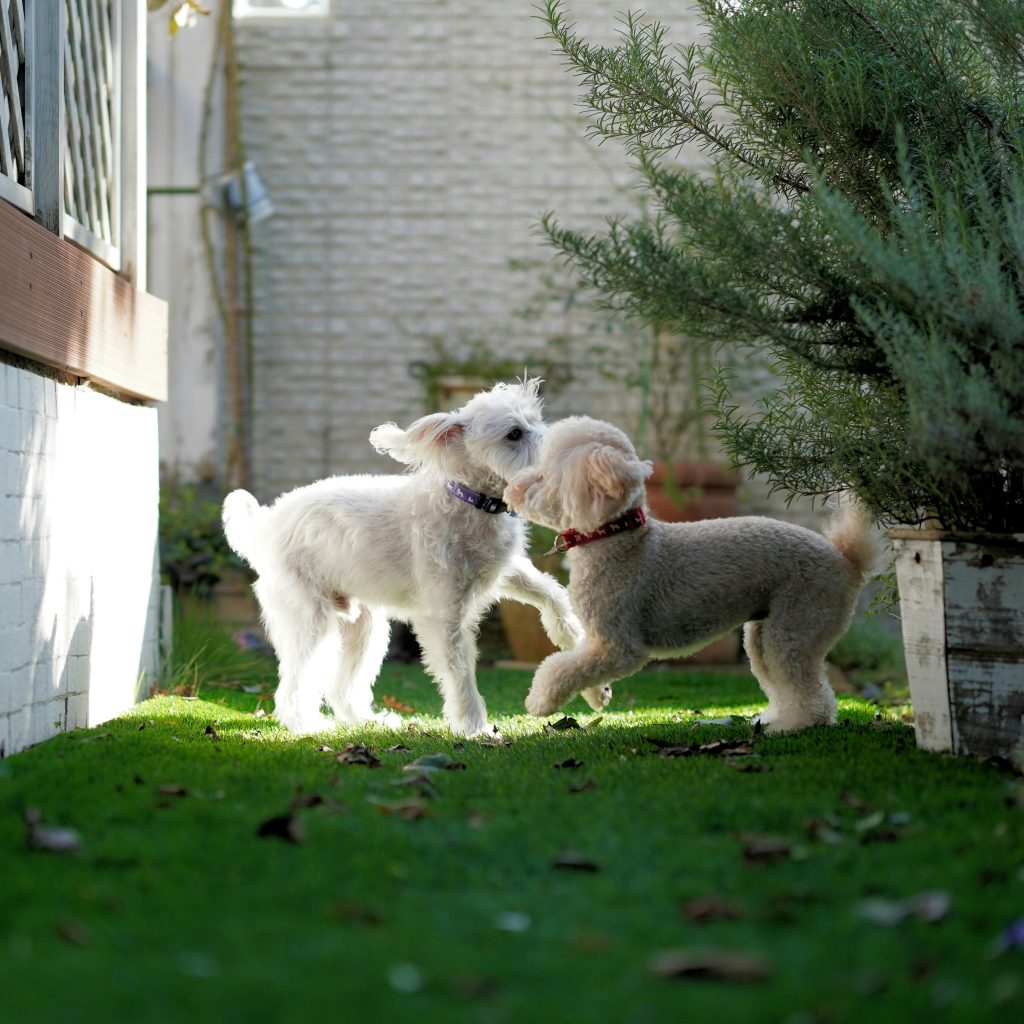One of the most important ways to help your puppy grow into a confident, well-adjusted adult dog is through early socialization. Socialization means gently and positively introducing your puppy to a wide variety of people, animals, sights, sounds, and experiences.
Done right, socialization teaches your puppy that the world is a safe, exciting place—and that they can handle whatever comes their way.
In this post, we’ll explore why socialization matters, when to start, and practical tips to help your puppy build confidence through positive experiences.

Why Socialization Matters for Confidence
Puppies are most receptive to new experiences between 3 and 16 weeks of age. During this critical window, their brains are primed to accept new sights, sounds, and smells without fear. Positive socialization during this time builds a foundation of:
- Emotional resilience
- Curiosity and openness
- Good manners with people and other animals
- Adaptability to different environments
Without adequate socialization, puppies may grow into fearful, anxious adults who struggle to cope with change or novelty.
How to Socialize Your Puppy Confidently
1. Introduce New Experiences Gradually
Expose your puppy to different environments, people, and situations slowly. Good starting points include:
- Walking on different surfaces (grass, concrete, gravel)
- Visiting quiet parks or pet-friendly stores
- Hearing everyday sounds like vacuums, doorbells, or traffic from a distance
Start with low-pressure situations and gradually work up to busier or louder environments.
2. Make It Positive
The goal is to pair new experiences with good things. Use:
- Tasty treats
- Cheerful praise
- Gentle petting or play
For example, give your puppy treats when they calmly watch a bicycle go by or when they meet a friendly stranger. This creates positive associations that boost confidence.

3. Focus on People and Dogs
Introduce your puppy to a variety of people:
- Adults and children
- People with hats, glasses, or umbrellas
- People of different ages, sizes, and ethnicities
Set up playdates with calm, well-socialized dogs or puppies to build canine social skills. Always supervise these interactions closely.
4. Handle With Care
Get your puppy comfortable being handled for vet visits and grooming:
- Touch their paws, ears, and tail gently.
- Practice brushing and gentle restraint.
- Pair handling with treats and praise.
This helps prevent fear during future exams or grooming appointments.
5. Watch Your Puppy’s Signals
Pay attention to body language:
- Relaxed body, wagging tail = comfortable
- Tucked tail, flattened ears, trembling = overwhelmed
If your puppy seems stressed, calmly remove them from the situation and try again later at a slower pace.
Common Socialization Mistakes to Avoid
- Flooding: Overwhelming your puppy with too many experiences at once
- Forcing interactions: Let your puppy approach people or animals on their own
- Skipping rest: Puppies need downtime to process new experiences
- Ignoring fear signs: Always respect your puppy’s comfort level

Special Tips for Nervous Puppies
If your puppy is naturally shy or cautious:
- Go extra slowly
- Keep socialization sessions short (5–10 minutes)
- Use high-value rewards (like chicken or cheese)
- Avoid noisy or chaotic environments early on
With gentle support, even nervous puppies can become more confident over time.
Socialization Isn’t Just for Puppies
While the critical window for socialization is up to 16 weeks, you should continue exposing your dog to new experiences throughout life. Lifelong socialization keeps your dog adaptable, curious, and resilient.
Final Thoughts
Socialization is one of the best gifts you can give your puppy. By introducing them to the world in a positive, gradual way, you’re setting them up for a lifetime of confidence and good behavior.
Remember, it’s not about perfection—it’s about building positive associations and helping your puppy feel safe and supported. With your help, your puppy will grow into a dog who greets the world with curiosity and joy.
